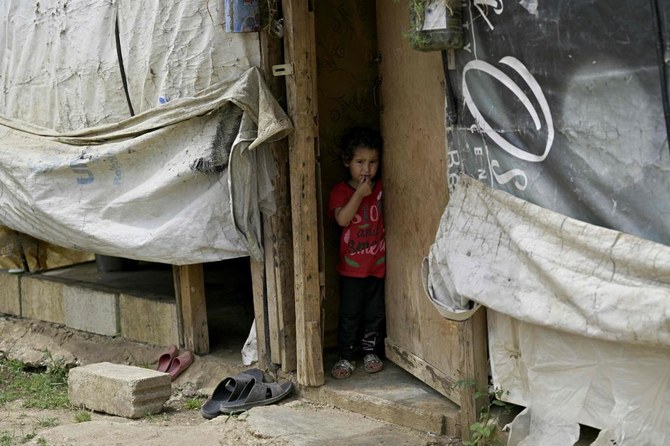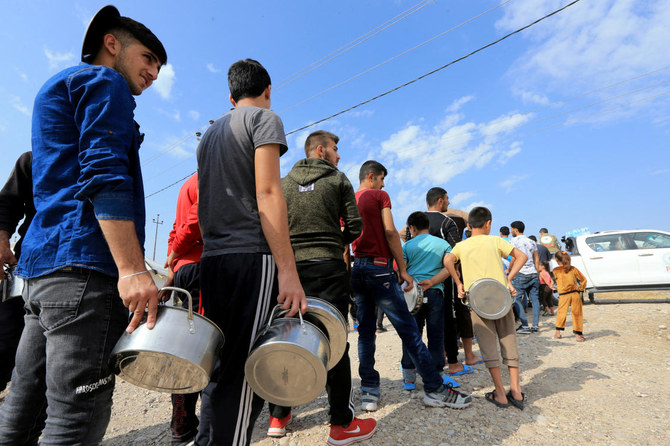DEIR AL-BALAH, Gaza Strip: Hamas said Sunday that the last living American hostage in Gaza, Edan Alexander, will be released as part of efforts to establish a ceasefire, reopen crossings into the Israeli-blockaded territory and resume the delivery of aid. Two Hamas officials told The Associated Press they expect the release in the next 48 hours.
US President Donald Trump’s envoy Steve Witkoff confirmed late Sunday in a message to AP that Hamas had agreed to release Alexander as a good will gesture toward Trump.
The announcement of the first hostage release since Israel shattered a ceasefire in March comes shortly before Trump visits the Middle East this week. It highlighted the willingness of Israel’s closest ally to inject momentum into ceasefire talks for the 19-month war as desperation grows among hostages’ families and Gaza’s over 2 million people under the new Israeli blockade.
Alexander is an Israeli-American soldier who grew up in New Jersey. He was abducted from his base during the Oct. 7, 2023, Hamas-led attack that ignited the war in Gaza.
Israeli Prime Minister Benjamin Netanyahu’s office said the US informed it of Hamas’ intent to release Alexander “without compensation or conditions” and that the step is expected to lead to negotiations on a truce. Netanyahu’s government was angered by US direct talks with Hamas earlier this year — which led to a Hamas offer to release Alexander and the bodies of four other hostages if Israel recommitted to a stalled ceasefire deal. Days later, however, Israel resumed the war.
Witkoff told the AP that Hamas’ goal in releasing Alexander was to restart talks on a ceasefire, the release of additional hostages and a surge of humanitarian aid into Gaza before Israel carries out a threatened total takeover of the territory.
Khalil Al-Hayyah, a Hamas leader in Gaza, said the group has been in contact with the US administration over the past few days.
Al-Hayyah said in a statement Hamas is ready to “immediately start intensive negotiations” to reach a final deal for a long-term truce, which includes an end to the war, the exchange of Palestinian prisoners and hostages in Gaza and the handing over of power in Gaza to an independent body of technocrats.
Indirect talks between Hamas and the US began five days ago, an Egyptian official and a senior Hamas official told the AP, with both describing the release of Alexander as a gesture of goodwill.
The senior Hamas official, speaking on condition of anonymity because he was not authorized to speak to the media, said Alexander is expected to be released on Monday. Hamas was advised to “give a gift to President Trump and in return he will give back a better one,” the official said.
Another Hamas official, speaking on condition of anonymity to discuss negotiations, said Alexander’s release is expected in the next 48 hours, adding that it requires Israel to pause fighting for a couple of hours.
The Egyptian official involved in ceasefire negotiations, speaking on condition of anonymity to discuss talks, said Hamas received assurances from the Trump administration through Egyptian and Qatari mediators that Alexander’s release “will put all files on the negotiating table” including an end to the war.
Alexander’s parents did not immediately return requests for comment.
Trump and Witkoff have frequently mentioned Alexander, now 21, by name in the past few months. Witkoff was traveling to the region on Monday ahead of Alexander’s expected release.
“Every time they say Edan’s name, it’s like they didn’t forget. They didn’t forget he’s American, and they’re working on it,” Edan’s mother, Yael Alexander, told The Associated Press earlier this year.
Hamas released a video of Alexander in November during the Thanksgiving weekend, his mother said. The video was difficult to watch as he cried and pleaded for help, but it was a relief to see the latest sign that he was alive, she said.
Fifty-nine hostages are still in Gaza, around a third of them believed to be alive. Most of the rest were released in ceasefire agreements or other deals. The Hostages Families Forum, the grassroots forum representing most hostage families, said Alexander’s release “must mark the beginning of a comprehensive agreement” that will free everyone.
Trump, whose administration has voiced full support for Israel’s actions, is set to visit Saudi Arabia, Qatar and the United Arab Emirates this week in a regional tour.
Bombardment continues
Israeli strikes overnight and into Sunday killed 15 people in Gaza, mostly women and children, according to local health officials.
Two strikes hit tents in the southern city of Khan Younis, each killing two children and their parents, according to Nasser Hospital, which received the bodies. Another seven people were killed in strikes elsewhere, including a man and his child in a Gaza City neighborhood, according to hospitals and Gaza’s Health Ministry.
The Israeli military says it only targets militants and tries to avoid harming civilians. It blames Hamas for civilian deaths in the 19-month-old war because the militants are embedded in densely populated areas.
Israel has sealed Gaza off from all imports, including food, medicine and emergency shelter, for over 10 weeks in what it says is a pressure tactic aimed at forcing Hamas to release hostages. Israel in March shattered the ceasefire that had facilitated the release of more than 30 hostages.
Aid groups say the humanitarian crisis is worse than at any time in the war, with food running low.
The war began when Hamas-led militants attacked southern Israel, killing some 1,200 people, mostly civilians, and taking 251 hostage.
Israel’s offensive has killed over 52,800 Palestinians, mostly women and children, according to Gaza’s Health Ministry, which does not say how many of the dead were combatants or civilians. The offensive has destroyed vast areas of the territory and displaced some 90 percent of its population.
Israel recovers remains of soldier killed in Lebanon in 1982
In a separate development, Israel said it retrieved the remains of a soldier killed in a 1982 battle in southern Lebanon after he had been classified as missing for more than four decades.
The Israeli military said Sgt. 1st Class Tzvi Feldman’s remains were recovered from deep inside Syria, without providing further details.
Netanyahu visited Feldman’s surviving siblings and told them that the overthrow of Syrian President Bashar Assad late last year led to an “opportunity” that allowed the military and the Mossad, Israel’s foreign intelligence agency, to gather additional intelligence and locate and retrieve the body, according to video released by his office.
Feldman went missing, along with five other Israeli soldiers, in a battle with Syrian forces in the Lebanese town of Sultan Yaaqoub.





























